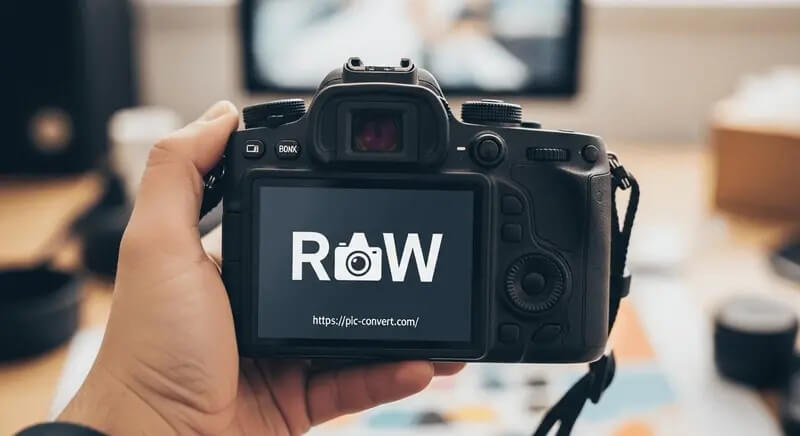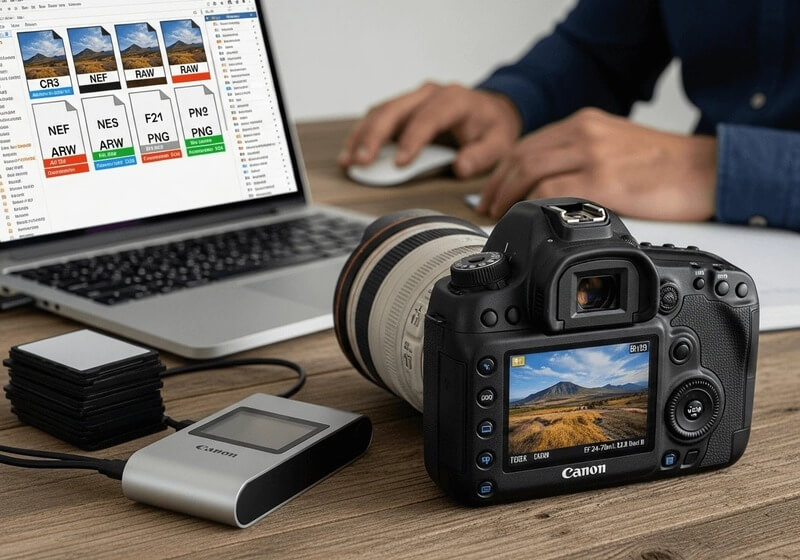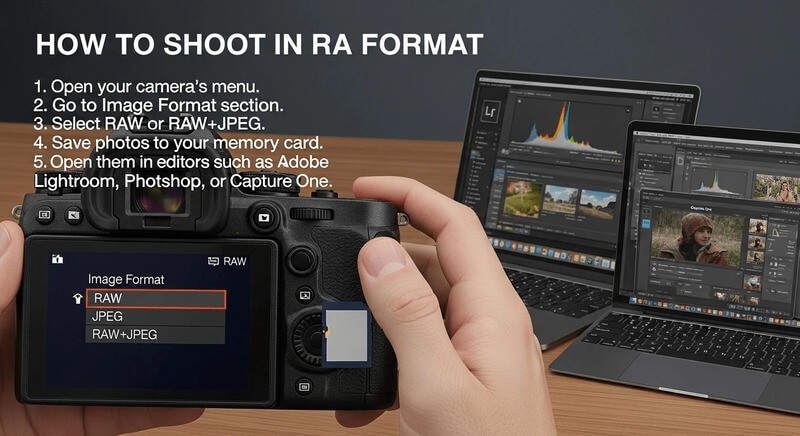Table of Contents
What is the RAW Image Format?
RAW is an unprocessed image format that stores all the data captured by a camera sensor. Unlike JPEG, it does not compress or apply in-camera processing, which means the file retains more details, colors, and dynamic range.
In other words, RAW is like a digital negative that requires further editing in photo software.

Why Use the RAW Format
Photographers choose RAW because it offers far more control over the final result:
- Maximum quality — no data loss during saving.
- Flexible editing — easily adjust white balance, exposure, saturation.
- Detail preservation — recover highlights and shadows.
- Professional results — suitable for printing and commercial projects.
Why Photographers Should Shoot in RAW
Even though JPEG might seem more convenient, RAW provides clear advantages:
- accurate color reproduction,
- no compression artifacts,
- the ability to re-edit photos multiple times without losing quality.
For professional and creative photography, RAW is the industry standard.
How to Shoot in RAW Format
Enabling RAW shooting is simple:
- Open your camera’s menu.
- Go to the Image Format section.
- Select RAW or RAW+JPEG.
- Save photos to your memory card.
- Open them in editors such as Adobe Lightroom, Photoshop, or Capture One.
How to shoot in Raw? Popular RAW Formats Table
Format Manufacturer Key Features Software Support .CR2 / .CR3 Canon High detail, large files Lightroom, Photoshop, Capture One .NEF Nikon Flexible color editing, wide dynamic range Lightroom, Photoshop .ARW Sony Preserves shadow details very well Lightroom, Capture One .ORF Olympus Smaller file size but high accuracy Olympus Viewer, Lightroom .RAF Fujifilm Unique color from X-Trans sensor Lightroom, Capture One .DNG Adobe (universal) Open standard, great for archiving Almost all editors .RW2 Panasonic Strong detail and color retention Lightroom, Photoshop
How to Convert RAW Format
Since RAW cannot be opened with standard Windows or macOS viewers, it must be converted first. You can do this in professional editors or online.
An easy option is to use an image converter, which quickly transforms RAW files into JPEG, PNG, and other formats without installing extra software.

RAW is a professional image format that gives photographers full control over quality. While different camera brands use their own RAW extensions (CR2, NEF, ARW, etc.), the principle remains the same: it preserves the maximum amount of data for editing.
If you want to unlock the full potential of your camera, shoot in RAW and only convert files into JPEG or PNG for sharing and printing.

